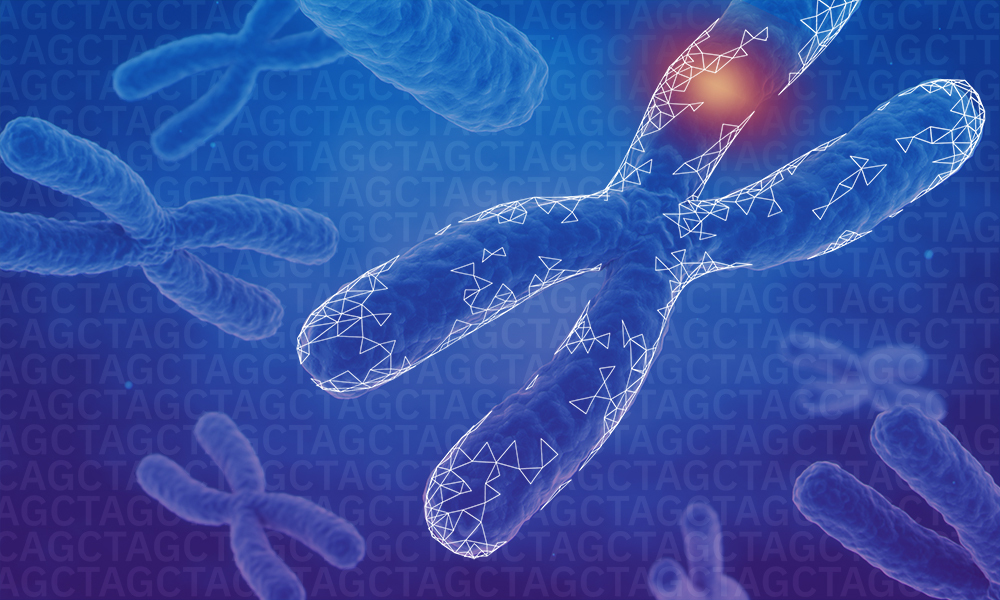
Read the latest Issue
Closer collaborations with EMBL-EBI data resources set to further develop and grow this unique rare disease platform

The DECIPHER website and database, which are used globally by researchers and clinicians to interpret and share phenotypic and genotypic data from rare disease patients, are moving to EMBL’s European Bioinformatics Institute (EMBL-EBI). The team behind this resource is now based at the organisation.
DECIPHER stores and shares phenotype-linked candidate diagnostic variants from people with rare disease. Where consent for open sharing has been given, this data is shared globally. Genomic variants are often difficult to interpret, making clinical diagnosis challenging. It can take many years for patients to obtain a rare disease diagnosis and this diagnostic odyssey is arduous for patients and their families. Sharing rare disease data helps clinicians to identify the genotype-phenotype correlations underpinning these disorders and assists in diagnosis. The wealth of resources in DECIPHER can give insight into potential therapeutic targets or highlight where management guidelines or treatments are available.
DECIPHER is an interactive website that incorporates a suite of bioinformatics tools designed to aid in the interpretation of genomic variants for rare disease research. The project was founded in 2004 at the Wellcome Sanger Institute and now holds data from over 46,000 patients from all over the world.
“The DECIPHER project enables the global sharing of rare disease patient data to help progress rare disease research,” said Matthew Hurles, Director of the Wellcome Sanger Institute. “Seeing the project move to EMBL-EBI is a huge step forward and will allow closer collaborations with EMBL-EBI’s world-leading biodata resources that will further strengthen the platform.”
The DECIPHER project has always benefited from EMBL-EBI data, displaying information from many of the institute’s data resources to assist in variant interpretation. These include data from Ensembl, the Ensembl Variant Effect Predictor (VEP), UniProt, Protein Data Bank in Europe (PDBe), and Gene2Phenotype. Moving to EMBL-EBI will help the project to strengthen these connections and further improve the user experience.
“DECIPHER allows clinicians and researchers to push the boundaries of gene–disease associations,” said Julia Foreman, DECIPHER Project Leader at EMBL-EBI. “The database is accessible and allows users to find new phenotypes and genetic variants associated with a particular disease.”
Phenotype linked variant data is deposited by clinical genetic centres from across the world. These centres obtain patient consent, which complies with the applicable laws and regulations in the depositing centres’ jurisdiction, to allow the data to be shared openly. This makes a patient’s rare disease variant discoverable globally so they can be offered the opportunity to participate in research or therapeutic trials and contribute to advancing knowledge. DECIPHER’s mission aligns with EMBL-EBI’s scientific and responsible data sharing strategies and will benefit from the institute’s expertise and data management skills.
DECIPHER is a powerful resource for genomic medicine. The website is continually being developed and updated to ensure that the most up-to-date genotypic and phenotypic data is presented, which is essential in this fast-moving field. DECIPHER’s browser views make it possible to see how gene function might be disrupted by a given variant. Simply by searching based on a patient’s genomic variant, clinicians can quickly access a wealth of information about a potential diagnosis.
“When I’m reviewing patients in the clinic, DECIPHER gives me a snapshot of what is currently known about a variant, enabling me to quickly assess whether it explains a patient’s symptoms and whether new knowledge has emerged since it was reported,” said Helen Firth, Consultant Clinical Geneticist and Hon. Professor of Clinical Genomics at Cambridge University Hospitals. “This is crucial to ensure that patients receive the most up-to-date, high-quality advice in such a fast-moving field.”
Researchers can evaluate genotypes and phenotypes to help in the understanding of new disorders. DECIPHER data has been used in over 3,000 publications, a testament to its importance in data-sharing and catalysing collaborations in rare disease research.
“Open genomic data is helping to diagnose and treat thousands of rare disease patients around the world,” said Andy Yates, Team Leader of Genomics Technology Infrastructure at EMBL-EBI. “It is truly a game-changer for the field and DECIPHER is among the key open data resources enabling this.”
Looking for past print editions of EMBLetc.? Browse our archive, going back 20 years.
EMBLetc. archive